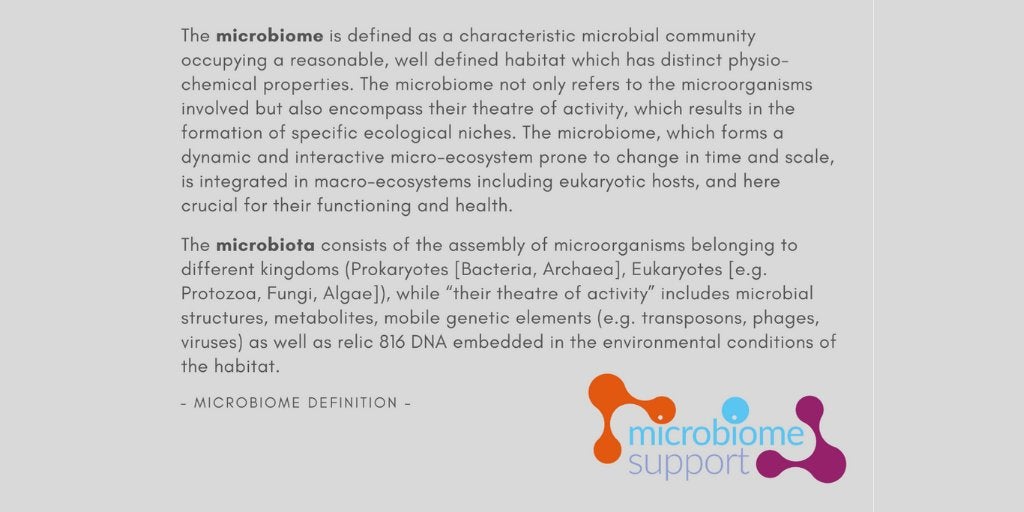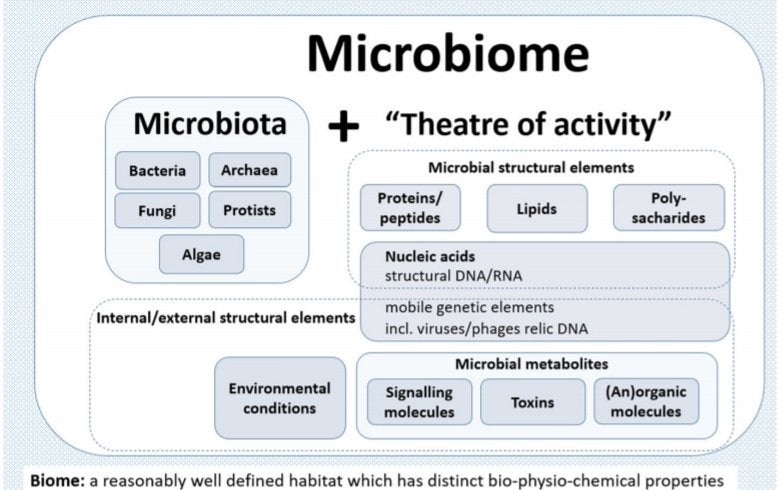The WCMR participated in a panel of international experts as part of our membership representing Canada in the international, EU funded project MicrobiomeSupport. The outcome of this workshop and subsequent online survey was to propose a widely accepted definition of 'microbiome', which was just published in the journal Microbiome.

Technological advances have changed our appreciation of the roles that microbes play. Throughout history our knowledge of microbes has improved, first understanding their role in disease and food spoilage, and then coming to a great understanding of the vast roles microbes play in our ecosystem and in our personal health. With the additional technologies such as DNA barcoding we can examine the populations of microbes present in an environment in ways that were never possible before.
Challenges in defining the microbiome include deciding what elements belong such as viruses and phage (technically not alive). The definition settled on was to define the microbiota as the living organisms component of the microbiome and the microbiota together with the 'theatre of activity' is the microbiome.

Considerably more is discussed in the article including core microbiota and spatial and temporal changes, host-microbe coevolution and technical standards in microbiome research.